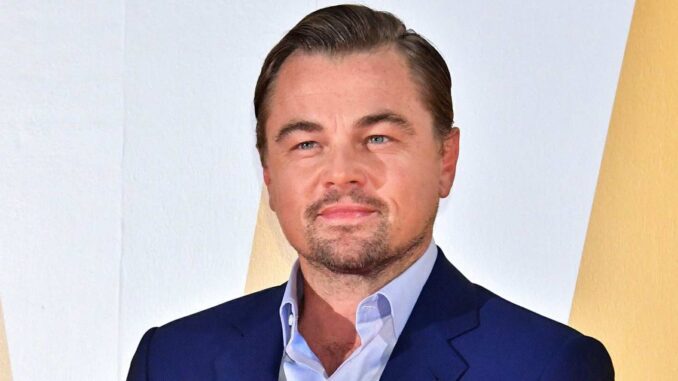
The Golden Cage and the Hunger: Leonardo DiCaprio's Unspoken Regret
Leonardo DiCaprio. The name alone conjures images of Hollywood royalty, of a career meticulously curated, a filmography studded with critical darlings and box office giants. He’s the poster boy for artistic integrity merged with commercial prowess, a man who conquered both the screen and the environmental movement. Yet, beneath the glittering surface of his success, one can imagine a silent whisper of regret, a pivotal crossroads where a choice, seemingly innocuous at the time, sparked an internal struggle that defined a significant chapter of his career. It wasn't a botched performance or a box-office flop, but perhaps the lingering ghost of a path not taken, a road less traveled that prolonged his arduous journey to ultimate validation.
The year is 1997. DiCaprio, still a strikingly handsome, intensely gifted young actor, stands at a precipice. On one side lies James Cameron’s Titanic, a monumental, almost guaranteed global phenomenon promising unparalleled stardom. On the other, Paul Thomas Anderson’s Boogie Nights, a daring, gritty indie masterpiece that would redefine the adult film drama. The anecdote, often recounted, suggests DiCaprio was deeply drawn to the role of Dirk Diggler, sensing its artistic weight and transformative potential. Yet, the siren song of Titanic's epic scale and guaranteed cultural penetration proved irresistible. He chose Jack Dawson.
The immediate aftermath was, of course, stratospheric. Titanic didn’t just make him a star; it made him a global heartthrob, an icon whose face adorned bedroom walls and magazine covers worldwide. He became synonymous with romantic leading men, a dream incarnate. But this very ascension, this sudden, overwhelming fame, inadvertently constructed a golden cage. The regret, then, wasn’t for the success of Titanic itself, but for the consequence of that success: the struggle to be seen as more than just a beautiful face, to shed the skin of a teen idol and emerge as the serious, transformative actor he clearly yearned to be.
This, arguably, sparked his "endless struggles." For years, DiCaprio fought an uphill battle against his own image. Every subsequent role became an audition, not just for the director, but for the audience and the Academy, desperate to prove his depth. He gravitated towards darker, more complex, often morally ambiguous characters – the deranged heir Howard Hughes in The Aviator, the troubled detective in Shutter Island, the ruthless slave owner in Django Unchained, the debauched stockbroker in The Wolf of Wall Street. Each performance was a masterclass in commitment, a deliberate attempt to shock, challenge, and ultimately redefine perceptions. But the ghost of Jack Dawson lingered, a shadow against which every new, gritty persona had to furiously contend.
The most tangible manifestation of this struggle was his protracted dance with the Academy Awards. Nomination after nomination came, a testament to his undeniable talent, yet the coveted golden statuette eluded him. It became a running joke, a meme, but for DiCaprio, one can only imagine it was a persistent ache, a symbol of the critical validation that felt perpetually just out of reach. Was it bad luck? Unfair competition? Or was it, in part, the lingering perception that he was the charming star who got by on looks, rather than the intense method actor who delved into the cavernous depths of human experience? Perhaps, had he taken the risk with Boogie Nights earlier, solidifying his dramatic gravitas before the Titanic tidal wave, his journey might have been less arduous. He might have been acknowledged as a serious artist sooner, bypassing years of intense scrutiny and the pressure to continually "out-act" his own legend.
Yet, in hindsight, even this struggle became a crucible. The endless pursuit of challenging roles, the relentless drive to prove himself, refined his craft to an extraordinary degree. It forged a resilience and a dedication that few actors possess. The regret, if it existed, transformed into a powerful motivator. It pushed him to scale Everest-like challenges, to endure the brutal conditions of The Revenant, a performance that finally, definitively, shattered the golden cage and delivered the Oscar he had so fiercely pursued.
Leonardo DiCaprio’s career is a testament to perseverance, but it's also a powerful illustration of the hidden costs of early, overwhelming success. The unspoken regret wasn’t a mistake, but a choice that, while yielding unparalleled fame, set him on a longer, more arduous path towards self-actualization as an artist. It taught him the value of hunger, the necessity of fighting for one's artistic truth, and ultimately, transformed a heartthrob into an indomitable force of nature, both on screen and off. His "struggles" were not failures, but the fiery trials that tempered a legend.
